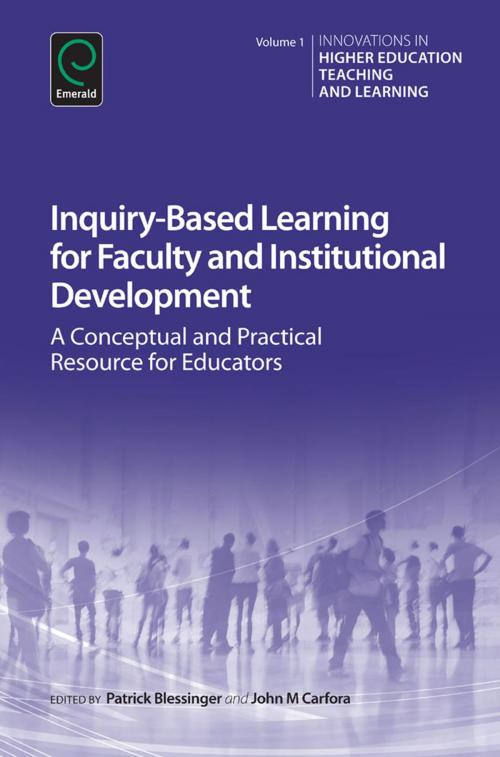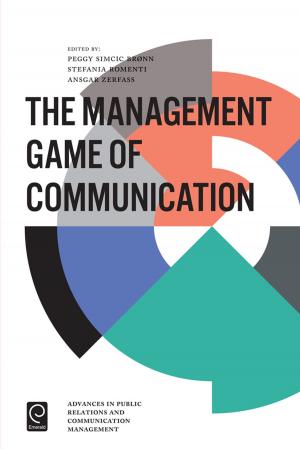Inquiry-Based Learning for Faculty and Institutional Development
A Conceptual and Practical Resource for Educators
Nonfiction, Reference & Language, Education & Teaching| Author: | ISBN: | 9781784412340 | |
| Publisher: | Emerald Group Publishing Limited | Publication: | December 5, 2014 |
| Imprint: | Emerald Group Publishing Limited | Language: | English |
| Author: | |
| ISBN: | 9781784412340 |
| Publisher: | Emerald Group Publishing Limited |
| Publication: | December 5, 2014 |
| Imprint: | Emerald Group Publishing Limited |
| Language: | English |
Inquiry-based learning (IBL) is a learner-centered and active learning environment where deep learning is cultivated by a process of inquiry owned by the learner. IBL has its roots in a constructivist educational philosophy and it is oriented around at least three components: 1) exploration and discovery (e.g., problem-based learning), 2) authentic investigations using contextualized learning (e.g., field studies), and 3) research-based approach (e.g., research-based learning). IBL encourages more self-regulated learning because the primary responsibility is on the learners to determine the issues and research questions and the resources they need to address the questions. In this way, learning occurs across all learning domains (affective, cognitive, and social) because different types of knowledge are acquired though experience with complex, real-life problems. This volume covers the many issues and concepts of how IBL can be applied to faculty and institutional development, serving as a conceptual and practical resource and guide for educators offering practical examples of IBL in action and diverse strategies for how to implement IBL in different contexts.
Inquiry-based learning (IBL) is a learner-centered and active learning environment where deep learning is cultivated by a process of inquiry owned by the learner. IBL has its roots in a constructivist educational philosophy and it is oriented around at least three components: 1) exploration and discovery (e.g., problem-based learning), 2) authentic investigations using contextualized learning (e.g., field studies), and 3) research-based approach (e.g., research-based learning). IBL encourages more self-regulated learning because the primary responsibility is on the learners to determine the issues and research questions and the resources they need to address the questions. In this way, learning occurs across all learning domains (affective, cognitive, and social) because different types of knowledge are acquired though experience with complex, real-life problems. This volume covers the many issues and concepts of how IBL can be applied to faculty and institutional development, serving as a conceptual and practical resource and guide for educators offering practical examples of IBL in action and diverse strategies for how to implement IBL in different contexts.















